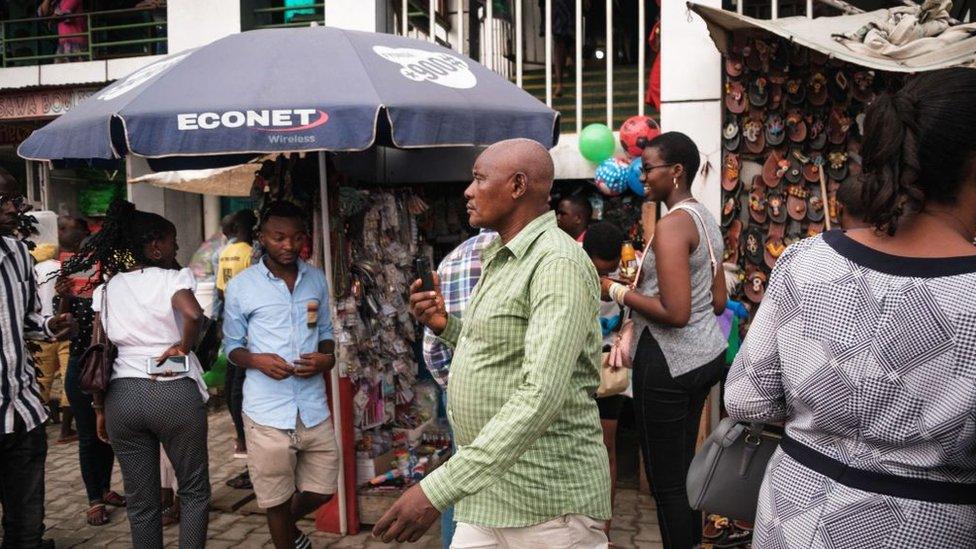Burundi media guide
- Published
This page is no longer being updated. It was last updated on 28 July 2023

A man listen the news on his phone in downtown Bujumbura
State-run outlets dominate the media. Journalists operate under strict press laws and face harassment over their coverage.
US-based NGO Freedom House says: "Freedom of expression is constitutionally guaranteed but severely restricted in practice by draconian press laws and a dangerous operating environment for media workers."
Many journalists have fled the country since 2015. Radio is the main source of information for many Burundians. Many privately-owned stations were shut after the 2015 coup attempt.
The government banned FM transmissions of BBC World Service radio in 2019, accusing it of airing a documentary it said had damaged the country's reputation - it lifted the ban in 2022.
There were 1.6 million internet users by December 2021, comprising 12% of the population (Internetworldstats.com).
Social media serve as news sources in place of shuttered radio stations. They are also used for attempts at spreading disinformation, says RSF.
Press
Le Renouveau - government newspaper
Iwacu, external - private weekly, online content in English/French
Ndongozi (Pacesetter) - founded by Catholic Church
Arc-en-ciel (Rainbow) - private, French-language weekly
Ubumwe (Unity) - government-owned weekly
Television
Television Nationale du Burundi, external - government-run, in Kirundi, Swahili, French and English
TeleRenaissance - private
Radio
Radio Burundi, external - government-run, in Kirundi, Swahili, French and English
Radio Publique Africaine, external - private
Radio CCIB+ - operated by Burundi Chamber of Commerce
Radio Culture - partly funded by health ministry
Radio Isanganiro, external - private
Radio Inzamba, external - online, operated by exiled Burundian journalists
News agencies
Agence Burundaise de Presse (ABP), external - state-run
Net Press, external - private